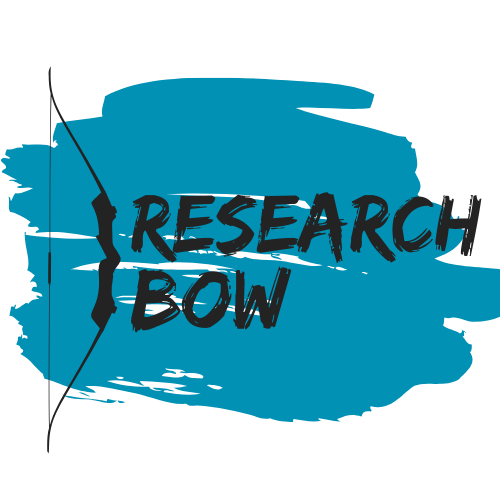Regardless if you are vegan or not, you may have already considered how your diet influences the planet and all the organisms living on it—especially now, when we are faced with environmental disasters and persistent news about animal cruelty.
However, the discourse about veganism is complex. As a researcher in the field of eating disorders, I am inclined to critically engage with any diet that includes rigid food restrictions. I recognize the many advantages of a vegan diet, but I would also like to raise awareness for the potential challenges of veganism that need to be assessed on an individual basis.
So, what is a vegan diet?
The Vegan Society (founded in 1944!) describes veganism as a “[…] philosophy and way of living which seeks to exclude—as far as is possible and practicable—all forms of exploitation of, and cruelty to, animals for food, clothing or any other purpose […]. In dietary terms, it denotes the practice of dispensing with all products derived wholly or partly from animals.” (1). The NHS describes a vegan diet as wholly plant-based, excluding all animal products such as meat, dairy, and eggs (2).
 Not everyone who is vegan practices veganism the same way (some people still eat honey or wear leather boots) so, for the purpose of this blog post, I will mainly focus on a vegan diet. As a psychologist and anthropologist, I am fascinated by the conscious choice to not only consider what is accessible or palatable, but what is ethical to consume. If we have managed to evolve into self-reflective, inventive human beings, how can we not find alternatives for the ways that we are exploiting the planet?
Not everyone who is vegan practices veganism the same way (some people still eat honey or wear leather boots) so, for the purpose of this blog post, I will mainly focus on a vegan diet. As a psychologist and anthropologist, I am fascinated by the conscious choice to not only consider what is accessible or palatable, but what is ethical to consume. If we have managed to evolve into self-reflective, inventive human beings, how can we not find alternatives for the ways that we are exploiting the planet?
However, veganism is not only associated with action against animal cruelty and environmental benefits. The Vegan Society states: “Going vegan is a great opportunity to learn more about nutrition and cooking and improve your diet. Getting your nutrients from plant foods allows more room in your diet for health-promoting options […]” (3). In a society where food options are almost unlimited, we are able to look at food from an optimization perspective. Therefore, we have the luxury to ask: how can we eat better? Health being one possible motivation behind a vegan diet, evokes another question: what is a healthy diet? A question that I have studied for the last two and a half years.
Talking about my research interests is usually associated with one of two reactions: awkward silence or strong opinions. More than once somebody has asked me “And what is your research about?” while biting into a cheeseburger, only to put it down quickly once I say the words “I study obsessive healthy eating”. Suddenly people become self-aware. Are they eating healthy enough? Is there such a thing as “too healthy”? How can something be bad if it is meant to be healthy? Health has become part of our moral system. Health is good. Therefore, we are ashamed if we are not healthy. If we are eating a cheeseburger, we do not want to be reminded of health, because momentarily we are doing something “bad”. We enjoy it, but do not want to think about it too much.
 “Healthy eating”, on the other hand, is perceived as a good thing. The ‘right’ thing to do. It makes us look better and live longer. But…what is a healthy diet? Many guidelines for healthy eating are continuously being published (and revised). However, most people from industrial countries do not meet outlined recommendations for healthy eating (4). In preparation for my PhD, I have read studies about the use of the Glycaemic index, the benefits of a Mediterranean diet, and the health of vegetarian Seventh Day Adventists. The more I read, the less I was convinced that there is such a thing as one healthy diet. Clear benefits were usually only found for eating a variety of foods while moderating the intake of anything but fruits and vegetables.
“Healthy eating”, on the other hand, is perceived as a good thing. The ‘right’ thing to do. It makes us look better and live longer. But…what is a healthy diet? Many guidelines for healthy eating are continuously being published (and revised). However, most people from industrial countries do not meet outlined recommendations for healthy eating (4). In preparation for my PhD, I have read studies about the use of the Glycaemic index, the benefits of a Mediterranean diet, and the health of vegetarian Seventh Day Adventists. The more I read, the less I was convinced that there is such a thing as one healthy diet. Clear benefits were usually only found for eating a variety of foods while moderating the intake of anything but fruits and vegetables.
Not knowing what a healthy diet looks like complicates my research project. For example, I have yet to meet a physician who endorses a vegan diet, but I have read multiple studies that see well-planned vegan diets as beneficial for ones’ blood pressure, heart disease and cancer risk. ‘Well-planned’ in this case means that supplements or fortified foods are needed to avoid iodine, calcium, vitamin D and B12 deficiencies (5). Having said this, ‘health’ is often reduced to our physical well-being. As a psychologist studying obsessive healthy eating, I have to go further. How ‘healthy’ are our eating behaviours for our mental well-being?
 Meat and dairy consumption are currently part of the social norm in Western societies (6), which might mean vegans have less options available at social gatherings involving food. Food restrictions, in the broadest sense of the word, are therefore part of being vegan. This does not mean that being vegan is associated with the same kind of restrictions as in disordered eating but focusing on what can or cannot be eaten might pose a problem for some people. A recently published large-scale study conducted in Germany (2020) (7) found a significant association between adhering to a vegetarian or vegan diet and the display of disordered eating behaviours. However, the authors conclude that the causal relationship is unclear (it could be a way of maintaining an eating disorder, the reason for developing an eating disorder or coincidental, as the samples of vegan participants are usually very small).
Meat and dairy consumption are currently part of the social norm in Western societies (6), which might mean vegans have less options available at social gatherings involving food. Food restrictions, in the broadest sense of the word, are therefore part of being vegan. This does not mean that being vegan is associated with the same kind of restrictions as in disordered eating but focusing on what can or cannot be eaten might pose a problem for some people. A recently published large-scale study conducted in Germany (2020) (7) found a significant association between adhering to a vegetarian or vegan diet and the display of disordered eating behaviours. However, the authors conclude that the causal relationship is unclear (it could be a way of maintaining an eating disorder, the reason for developing an eating disorder or coincidental, as the samples of vegan participants are usually very small).
So, what could the relationship be between veganism and disordered eating? As outlined by the Vegan Society, potential motivations for becoming vegan involve ethical, environmental and health considerations. At the same time, having a history of an eating disorder or being inclined to diet for weight loss reasons need to be taken into consideration when assessing the motivations behind veganism. Vegan diets have been associated with a higher risk for dysfunctional food preoccupations (8), only if health was an important motivation for becoming vegan. This could be related to the fact that we are still struggling to define “healthy eating”, with current definitions being too extreme. Furthermore, a vegan diet requires conscious planning in order to avoid malnutrition, which is why it might lead to an extreme fixation on food.
It is beautiful to see that more and more people think about how to make this planet a better place. However, we should not forget that ‘health’ is a concept we have created and ‘being healthy’ could mean very different things for different people.
If you decide to become vegan, be aware of why you are motivated to do so as you will need to do your research on how to supplement the foods you are not eating anymore. If this is causing you any distress, talk to someone you trust and think about getting professional help to balance your aspirations to change with your own well-being in every sense of the word.

References
1.) https://www.vegansociety.com/go-vegan/definition-veganism
2.) https://www.nhs.uk/live-well/eat-well/the-vegan-diet/
3.) https://www.vegansociety.com/go-vegan/why-go-vegan
4.) De Ridder, Denise, Kroese, Floor, Evers, Catharine, Adriaanse, Marieke, & Gillebaart, Marleen. (2017). Healthy diet: Health impact, prevalence, correlates, and interventions. Psychology & Health, 32(8), 907-941.
5.) http://www.eatrightpro.org/~/media/eatrightpro%20files/practice/position%20and%20practice%20papers/position%20papers/vegetarian-diet.ashx
6.) Monteiro, C. A., Pfeiler, T. M., Patterson, M. D., & Milburn, M. A. (2017). The Carnism Inventory: Measuring the ideology of eating animals. Appetite, 113, 51-62.
7.) Paslakis, Georgios, Richardson, Candice, Nöhre, Mariel, Brähler, Elmar, Holzapfel, Christina, Hilbert, Anja, & De Zwaan, Martina. (2020). Prevalence and psychopathology of vegetarians and vegans – Results from a representative survey in Germany. Scientific Reports, 10(1), 6840.
8.) Barthels, Friederike, Poerschke, Saskia, Müller, Romina, & Pietrowsky, Reinhard. (2019). Orthorexic eating behavior in vegans is linked to health, not to animal welfare. Eating and Weight Disorders, 25(3), 817-820.
Some potentially helpful links
Godin, L. and Sahakian, M., 2018. Cutting through conflicting prescriptions: How guidelines inform “healthy and sustainable” diets in Switzerland. Appetite, 130, pp.123-133.




